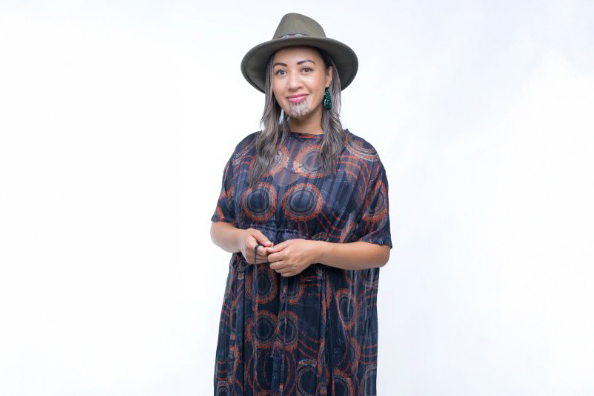What is possibly the world’s first indoor drift trike centre is on the home straight with Te Wānanga o Aotearoa graduate Rawinia Rimene behind the wheel.
Drift Trikes New Zealand officially opened its Porirua warehouse doors late last month to an excited crowd of supporters.
The motorised phenomenon is thought to have originated in Whanganui as pedal drift trikes, less than a decade ago. But growing popularity in the United States has seen its appeal spread to become an internationally-recognised sport.
As a new business owner, Rawinia completed three courses through the Porirua campus starting her first; a Certificate in Money Management in 2014.
She wanted to enrol into the year-long Certificate in Small Business Management but was persuaded to complete the six-month financial course first, after admitting she had “some bad budget issues.”
“It showed me a whole different concept of money. The way it was executed was really helpful, it was good how the tutors used real-life case studies.”
The Certificate in Small Business Management followed, by which time Rawinia was a full time mum to a one-year old.
A certificate of Business Growth and Development came next but when her partner Justin Leelo, an electrician by trade and an engineering tutu by heart, considered building and selling drift trikes, she asked;
“Why don’t we set up a centre?”
Cue eight months of research while trying to find something similar to model their idea off. The closest development they came to was indoor go-karting.
“We didn’t know where to start and didn’t find anything. Interest had grown but we couldn’t find anything like it, no safe enclosed environment.”
To meet OSH standards, Justin designed and built special features on the trikes which have now been patented – another business tool Rawinia was introduced to while studying.
“We wouldn’t have this business if I didn’t go to Te Wānanga o Aotearoa. I wanted something that would give me all the skills, patenting, contracts, non-disclosure agreements, business plans. It taught me everything I need to know and I’m so grateful for it.”
Despite all the support Te Wānanga o Aotearoa provided, Rawinia found it near impossible to access any start up business grants from agencies claiming to support young Māori entrepreneurs.
Untold hours of submissions and application revisions amounted to nothing. From a six week course of 20 hopefuls, the only person to receive a financial hand was a man mowing lawns.
Rawinia didn’t give up though. With support from her partner’s mother, they were able to realise their dreams.
Rawinia says the couple’s short -term goals include offering the experience to other town centres throughout the country and hosting the world’s first Drift Trike Tournament.
“A five-year goal is hiring the stadium in Wellington and hosting a massive event.”
Visit www.drifttrikes.co.nz for information.




































